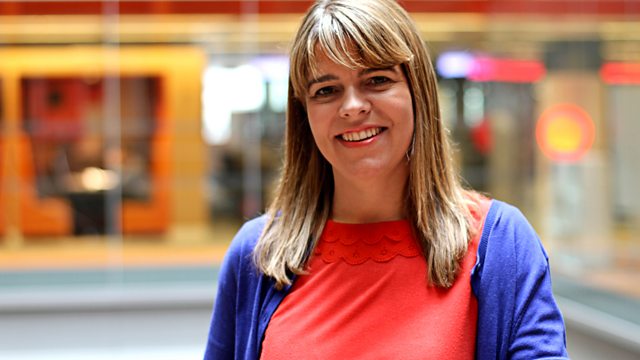What's in a Label?
How accurate is a mental health diagnosis? Claudia Hammond reports on the value of a label and finds out why some mental health practitioners just refuse to give them.
Suzy built her life around a diagnosis of bipolar disorder, joining a support group, even writing a book about it, only to be given a completely different diagnosis not once, but twice. She lost her support group and a big part of her identity when her diagnosis was changed.
In this second programme in the series, Claudia considers the value and the accuracy of diagnoses in mental health. Unlike a broken wrist, diabetes or anaemia, where you can be fairly hopeful that the testing makes the diagnosis watertight, there is not a single x-ray, blood test or biopsy that can give a definitive diagnosis of a mental health problem. Instead the symptoms that a person describes are assessed and a diagnoses given based on how they cluster and fit with diagnostic categories. The whole process is much more fluid, with many symptoms shared or absent both within and between different disorders and conditions.
As Suzy describes, a mental health diagnosis can be seismic for the person concerned. In a positive way it can bring recognition, relief, treatment and recovery and in a negative way it can bring judgement, prejudice, discrimination and isolation. Because a diagnosis in mental health is above all, intensely personal. It can feel aimed at the very centre of you and your identity.
Claudia explains the backdrop to the classification of mental health conditions. She looks at the Psychiatrists' Bible, a.k.a. the DSM or the Diagnostic and Statistical Manual and considers the enormous growth in each of five volumes published over the past 70 years (it's said the last edition is big enough to stop a bullet). How does this American framework affect how we view, assess and treat mental health difficulties in this country?
There are some who disagree profoundly with formal classification framed by the DSM, describing it an inappropriate "medical model" for mental health problems. Claudia talks to clinical psychologist, Dr Lucy Johnstone, who has never, in her 30 year career, given a diagnosis and believes the starting point should be not "what's wrong with me?" but "what's happened to me?". But Claudia also hears from others, including the former President of the Royal College of Psychiatrists, Professor Sir Simon Wessely, who maintain diagnoses are accurate, valuable and flexible enough so that good clinicians can use them as the starting point for care.
Rose tells Claudia how her diagnosis for Obsessive Compulsive Disorder gave her the key to understanding years of troublesome and persistent thoughts and Jane, diagnosed with a developmental condition, Autism Spectrum Disorder, describes how getting a formal diagnosis gave her the knowledge and confidence to change careers and find work in a more supportive environment.
And Suzy, a peer researcher at the Institute of Health and Wellbeing at the University of Glasgow, whose diagnosis kept changing, gives tips about how to deliver and change diagnoses with compassion, care and understanding.
Producer: Fiona Hill
Last on
More episodes
Previous
Next
Broadcasts
- Fri 19 Jul 2019 11:00大象传媒 Radio 4 FM
- Wed 15 Jan 2020 21:00大象传媒 Radio 4

